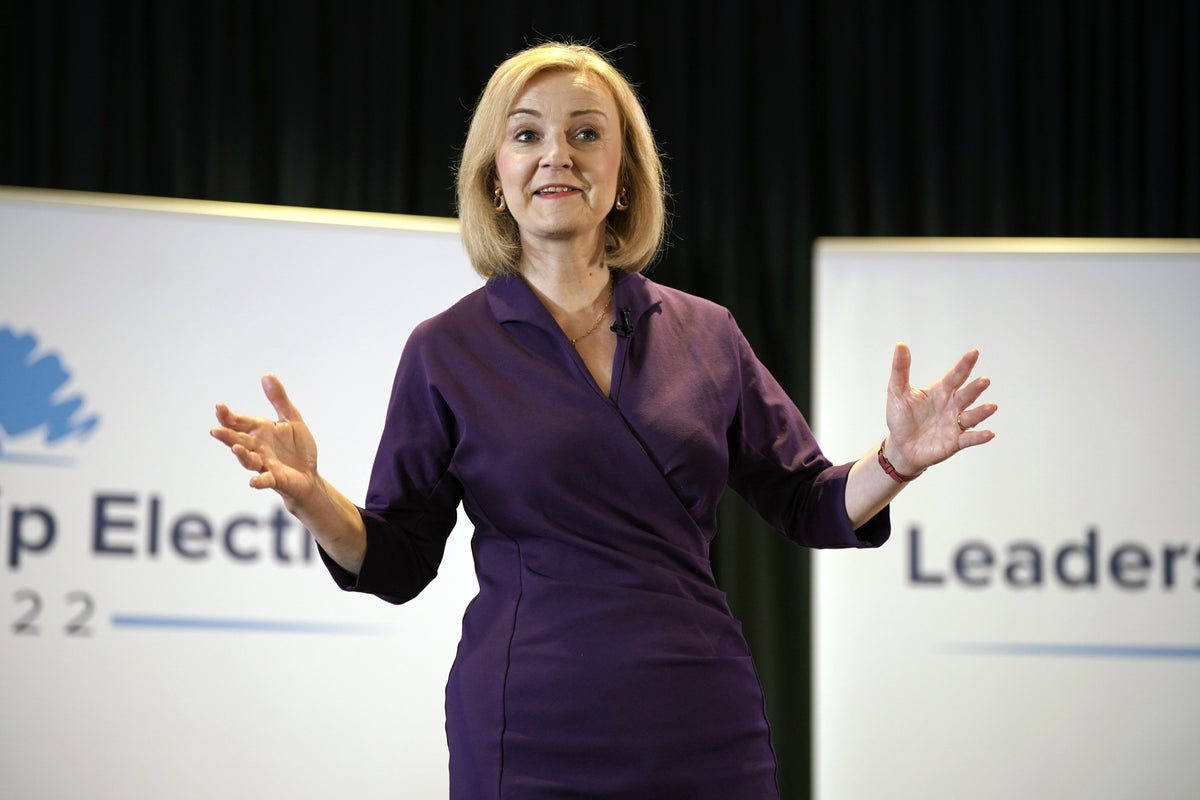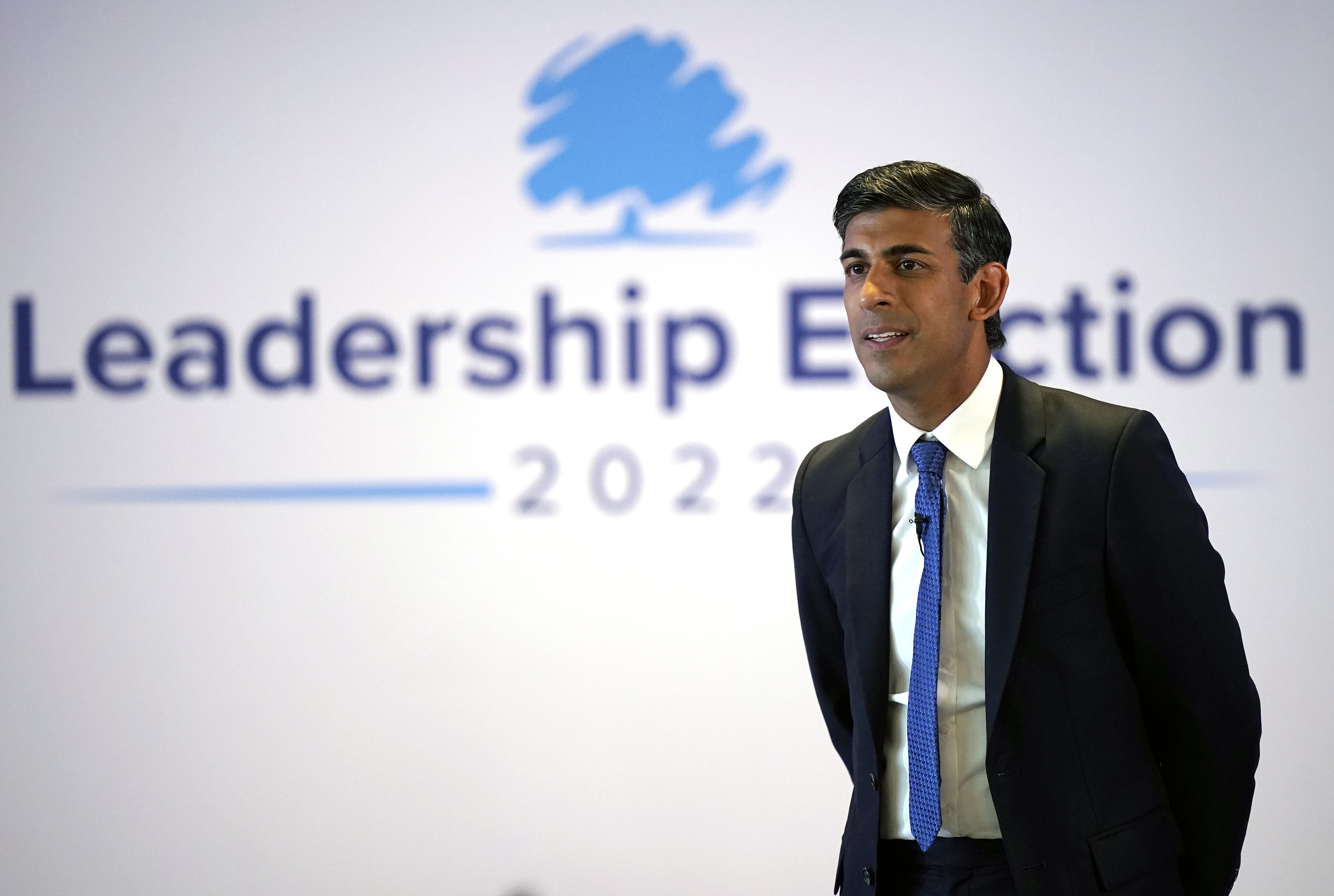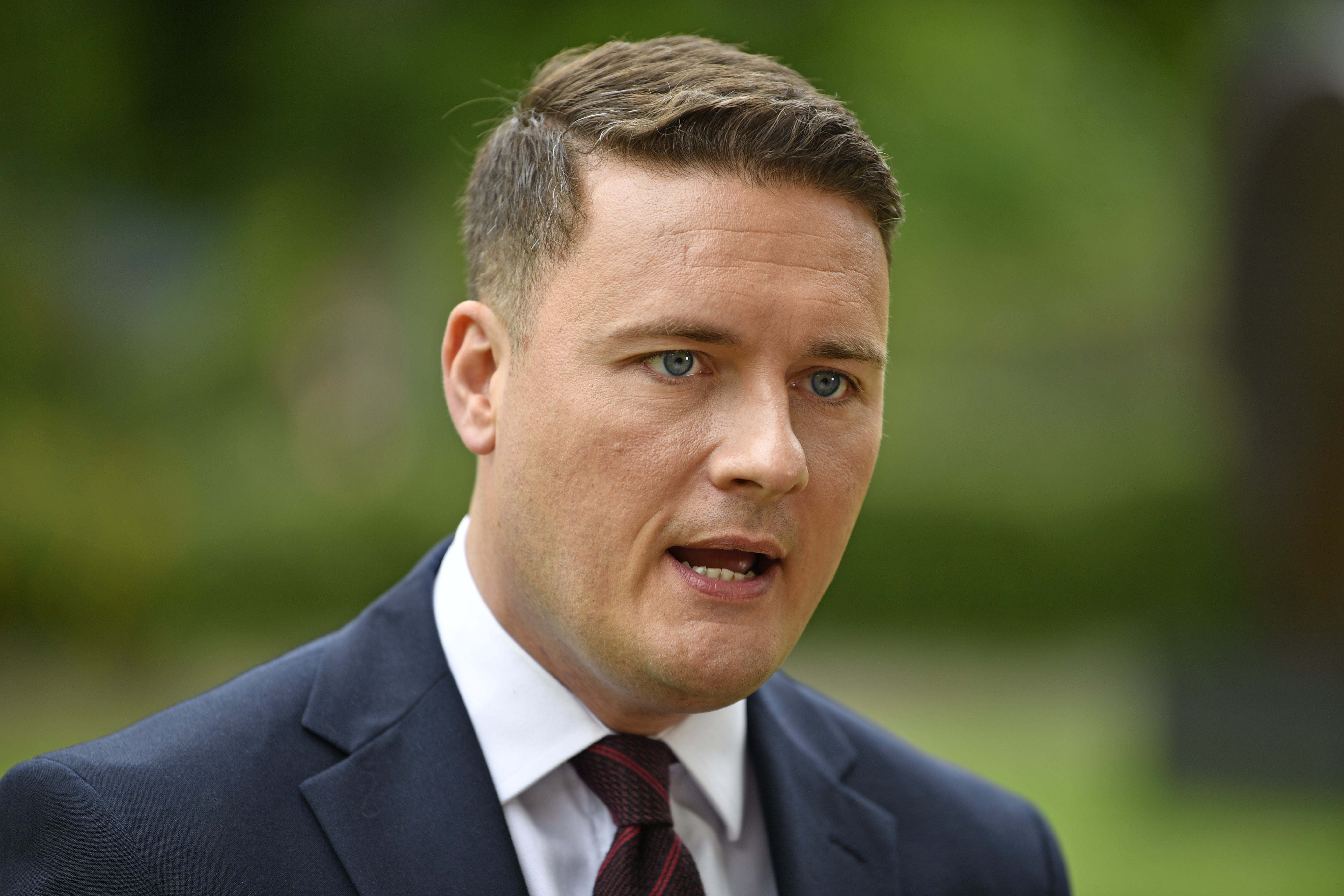
Tory leadership frontrunner Liz Truss has said there is “too much talk that there’s going to be a recession” as she insisted an economic slump is not inevitable.
The Foreign Secretary suggested a “level of ambition” was needed to “change the orthodoxy” and avoid the outcome forecast by the Bank of England.
Her optimism came after Conservative heavyweight Michael Gove warned that she was on a “holiday from reality” with her tax vision as he endorsed her rival Rishi Sunak.
With the invasion of Ukraine forcing gas prices up, the Bank warned earlier this month that the UK could suffer the longest recession since the 2008 financial crisis.
The economy shrank by 0.6% in June and forecasters predicted it will contract again in the final quarter of this year and throughout 2023.
But Ms Truss reiterated her belief this can be averted as she pins her hopes on immediate tax cuts spurring growth of the economy, as inflation drives a cost-of-living emergency.
In an interview with the Sun on Sunday, she promised a “small business and self-employed revolution” to help turn things around.
“Those are the future big companies we need to develop — and why shouldn’t Britain have the next Google or the next Facebook? Why shouldn’t it be a British company?” she said.
“It’s about that level of ambition. There is too much talk that there’s going to be a recession. I don’t believe that’s inevitable. We can unleash opportunity here in Britain.”

Among Ms Truss’s economic plans is a review of IR35 rules, which she argues “treat the self-employed the same as big business” and can force self-employed workers to overpay tax.
The rule was introduced in 2000 to prevent tax avoidance by “disguised employees” who do the same job as an employee but escape income tax and national insurance by providing services through an intermediary such as a personal services company.
High-profile TV personalities have been targeted under the rules.
Meanwhile, the Sun reported plans being drawn up by the Treasury for doctors to be able to write prescriptions to give people money off their energy bills.
Shadow health secretary Wes Streeting accused the Conservatives of having “lost the plot” with the proposal, as he reiterated Labour’s proposal to stop energy bills rising over the winter.
Business Secretary Kwasi Kwarteng, a close ally of Ms Truss who is tipped to be her chancellor, insisted there would be fresh support this winter as energy bills soar.

“I understand the deep anxiety this is causing. As winter approaches, millions of families will be concerned about how they are going make ends meet,” he wrote in the Mail+.
“But I want to reassure the British people that help is coming.”
He said Ms Truss “will look at what more can be done to help families” but insisted it is “entirely reasonable not to detail the exact shape of that support until she has all the information to hand”.
On Friday, Mr Gove, who served as levelling-up secretary until being sacked by Boris Johnson before his resignation as Tory leader, issued a warning about Ms Truss’s plans for tax cuts during an economic crisis.
He wrote in the Times that they would put “the stock options of FTSE 100 executives” before the nation’s poorest people as he backed Mr Sunak, a former chancellor.
Mr Gove criticised Ms Truss’s plan to immediately reverse the national insurance hike and her previous dismissal of increasing direct support to the most vulnerable when she said she opposed “handouts”.
On the economy, Mr Gove said: “And here I am deeply concerned that the framing of the leadership debate by many has been a holiday from reality. The answer to the cost-of-living crisis cannot be simply to reject further ‘handouts’ and cut tax.
“Proposed cuts to national insurance would favour the wealthy, and changes to corporation tax apply to big businesses, not small entrepreneurs.”
There have been concerns within Conservative ranks that the protracted leadership contest over the summer is damaging the party’s electoral prospects, with the final two candidates rubbishing each other’s ideas.
A new poll by Opinium gave Labour an eight-point lead over the Conservatives, the largest since the pollsters introduced a new methodology in February.
The survey of 2,001 adults this week put Labour on a 39% vote share to the Tories’ 31%, while it also gave a boost to Sir Keir Starmer, with respondents preferring him to either Ms Truss or Mr Sunak.







